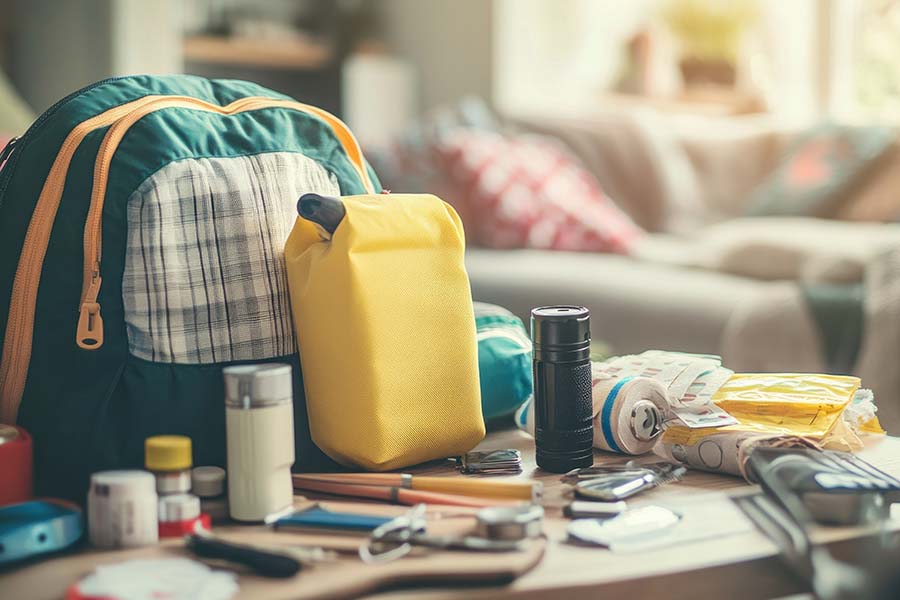Individual Preparedness

Be Prepared With Plans, Procedures and Alerts
Preparedness is an important priority at UNMC, and you should be prepared for and ready to respond to emergencies. You might be required to quickly assess a situation and use your best judgement to determine what action to take during an emergency. How?
- Know UNMC's emergency plans and procedures.
- Register for UNMC Alert.
- Create an emergency plan.
- Build an emergency kit.
Make a Plan
Emergencies can occur anywhere at any time, and it is important to know emergency procedures and to have a personal plan.- Choose an out-of-area contact person as your emergency point of contact.
- Know and practice shelter-in-place locations and evacuation routes in your home, classroom buildings and office.
- Visit Ready.gov for information about making emergency plans for common disasters and for specific advice for groups, including businesses, those with disabilities and children.
- Find more information about making emergency plans through the American Red Cross.
Build a Kit
The Federal Emergency Management Agency recommends an emergency kit that will sustain you for up to 72 hours. Basic utility services such as water, gas and electricity may be cut off for days or weeks following a disaster.
More information on building emergency kits is available at ready.gov.
Basic Disaster Kit
Remember to keep emergency kits in multiple locations, such as at home, at work or school, and in your vehicle. Some people might need additional items, depending on their health or physical condition.
- Three-day supply of nonperishable food that requires no refrigeration or cooking, such as ready-to-eat canned meats, fruits and vegetables, crackers and protein bars.
- One gallon of water per person per day.
- Infant formula and diapers.
- Radio and flashlight, hand crank or battery-powered.
- Extra batteries.
- Fire extinguisher
- Blankets.
- Cell phones with chargers.
- Change of clothing appropriate for the current climate.
- Pet food and water.
- Feminine supplies and personal hygiene items.
- First-aid kit.
- Latex or sterile gloves.
- Adhesive bandages or wrap.
- Soap and antibiotic wipes.
- Thermometer.
- Daily prescription medications and necessary medical supplies such as inhalers or glucose monitors.
- Scissors and tweezers.
- Social Security cards.
- Birth certificates.
- Driver’s licenses or passports.
- Bank account numbers.
- Insurance information.